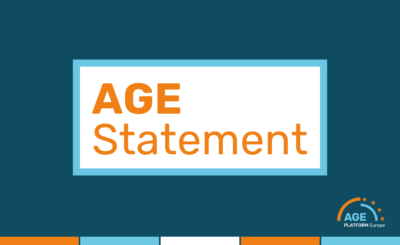European Union countries agreed in 11 May 2017 to allow the European Union to sign the Council of Europe Convention (Istanbul Convention) on preventing and combating violence against women and domestic violence.
What is the Istanbul Convention?

The Convention states explicitly (article 4) that it applies equally to all and withough discrimination on any grounds, including age.
Why is the EU signature important?
This is very important news, because it means that the European Union will be much more active proposing concrete actions to end violence against women and girls in the near future. The EU will have a legal obligation to act, notably in the field of the cooperation between the legal and judicial systems of the different European Union countries – which is essential in order to enforce more effective prosecution of offenders.
All European Union countries have already signed this Convention. The fact that the EU signs it as well means that it will also act within its own powers in order to implement it. If the implementation of the Convention is properly done, women across the European Union will enjoy better protection from gender-based and domestic violence.
When does this come into effect? What are the next steps?
This decision opens now a process that can take several months or even over a year, through which the countries of the EU and the Commission will discuss technical issues regarding the ratification. Then the European Parliament will need to give its consent to the decisions taken and give the final green light for the ratification by the European Union. After ratification, the Convention will enter into force in the European Union.
And AGE in all this?
AGE has called on the European Union to ratify the Istanbul Convention, notably through a joint manifesto signed with other European organisations and in our position paper on the protection of victims of elder abuse. Older women are in a particularly vulnerable situation: they often suffer both ageist attitudes and gender-based discrimination, and often carry life-long histories of suffering violence and abuse. A 2011 study found that 28% of older women in a sample across 5 European countries had suffered abuse and violence over the previous year.
Older women who suffer violence face additional obstacles in seeking protection, both in relation to cultural barriers and feelings of powerlessness and resignation, and also due to the lack of adequate training and awareness of police and legal officers. Bridget Penhale, expert of AGE’s task force on Dignified Ageing, is studying this issue and is working with UK police forces to change the situation.
AGE is member of the European Coalition to end violence against women and girls, led by the European Women’s Lobby. We will continue working within the coalition in order to ask for ambitious European Union action.
For more information you may contact Borja Arrue, AGE Project and Policy Officer responsible for long-term care and elder abuse, borja.arrue@age-platform.eu





